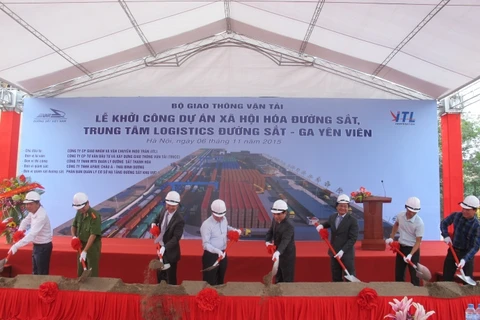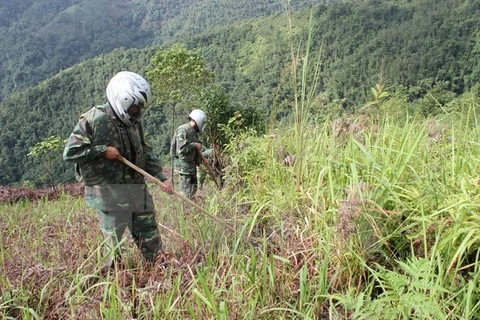Hanoi (VNA) - Logistics trading is not provided adequate conditions for development in Vietnam though it is considered a cash cow sector, Nguyen Cam Tu, Deputy Minister of Industry and Trade, said.
Tu told a conference, held to provide market information and favourable commercial mechanism to facilitate import-export and transport businesses in Hanoi on November 17, that Vietnam should create favourable conditions for trade activities as well as building an effective logistics sector for better exports. In addition, the country should have high value products in the world market while increasing integration in the seaport sector.
"The country's weakness is low competitiveness due to a lack of high value products and low technology content," he said.
He added that the regulations on border gate trade, especially transport infrastructure and logistics services had not been given attention.
He suggested that Vietnam should improve services quality, infrastructure and trade to promote the country's key export sectors.
Bui Hong Minh from the ministry's Import-Export Department said that most of the Vietnamese enterprises signed import contracts under Cost, Insurance and Freight (CIF) and export contracts under Free on Board (FOB) method, thereby transporting a majority of goods through foreign shipping companies. It was the reason that a relatively big amount of transport fees of 17 billion USD a year for imported and exported goods were paid to foreign firms.
Minh clarified that logistics included warehouse services, transport and loading. In some countries such as Singapore, the logistics costs accounted for only 12 percent to 15 percent.
However, the cost in Vietnam was as high as 20 percent of the total for each export item. In addition, the lack of human resources for logistics services has also affected the competitiveness of exporters.
"The shortage of synchronous transport methods has made logistics cost higher. This has resulted in low competitiveness for Vietnamese goods and services," he said.
He proposed that Vietnam should have reforms at the macro level, focusing on facilitation of trade activities.-VNA

Work starts on Yen Vien railway logistics centre
The state-owned Vietnam Railway Corporation and the Indo Trans Logistics Corporation held a ceremony on November 6 to commence the construction of a railway logistics centre in Yen Vien station.























